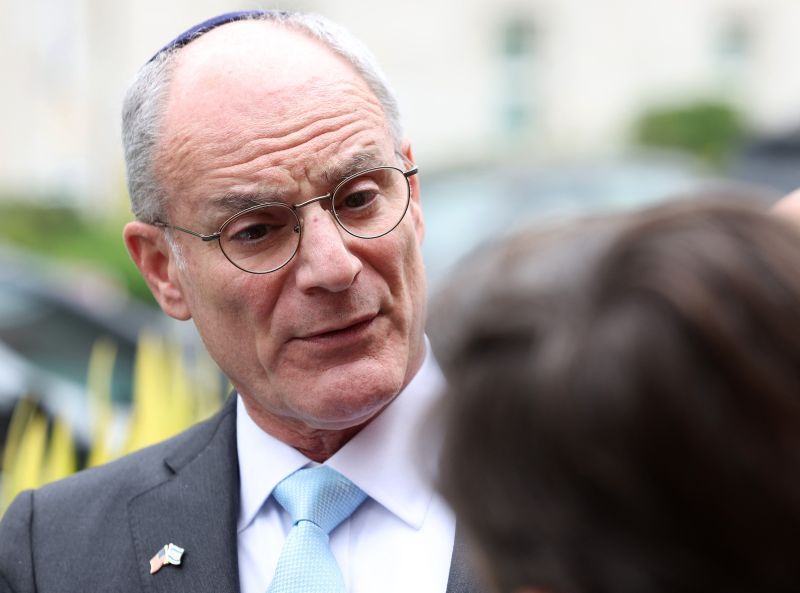
While Saudi Arabia is often cited as the next country to join the Abraham Accords, a statement by Israeli diplomat Yechiel Leiter upsets predictions. In an interview with Marissa Streit, CEO of US platform PragerU, the Israeli ambassador to the United States openly raises the possibility of Lebanon and Syria joining the normalization agreement before Riyadh. His comments were picked up by several media outlets, including The Jerusalem Post and Caliber.az, as well as Lebanese platforms such as Al Markaziya, quoting Annahar.
For Leiter, the regional context is no longer the same. He believes that the obstacles that blocked certain rapprochements have disappeared. “There are now no obstacles to reaching an agreement with Syria and Lebanon,” he said. “We have profoundly transformed the political model in this area.”
As far as Lebanon is concerned, he spoke of an opportunity on the condition that the country begins to find a way out of the crisis. And for him, this means first and foremost disarming Hezbollah. “As long as Lebanon progresses in this direction, we'll be closer to an agreement and a form of peace,” he says. He also spoke of an evolving ceasefire, linked to what he called “concrete results.”
As far as Syria is concerned, the approach is similar. The ambassador considers that the lifting of US sanctions should only depend on visible acts: the end of jihadist groups, the banning of organizations such as Hamas and Hezbollah, and better protection of minorities, notably the Druze and Alawites. He also insists on the need to observe the first gestures of Ahmad el-Chareh, the new Syrian president, who succeeded Bashar al-Assad.
The interview also looks back at the failure of talks with Riyadh five years ago. According to Leiter, if Donald Trump had been re-elected in 2020, a deal could have seen the light of day. “Saudi Arabia was not far from concluding as early as 2019,” he asserted. Nevertheless, he assures us that dialogue between the two countries has not ceased, even with the ongoing war between Israel and Hamas.
These statements add to a series of recent announcements concerning the Abraham Accords, signed in 2020 with the United Arab Emirates, Bahrain, Morocco and Sudan. Until now, no senior Israeli official had so clearly included Lebanon and Syria in this process. These two countries are still officially at war with Israel.
Beirut and Damascus have not yet reacted. He also spoke of an evolving ceasefire, linked to what he called “concrete results.”
These statements could therefore raise questions about the new diplomatic priorities and the way in which certain lines seem to be gradually redrawn.



Comments